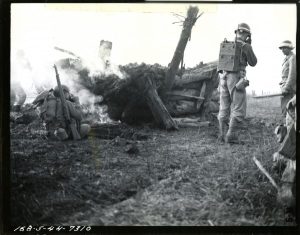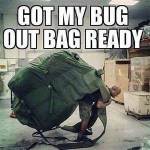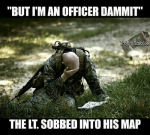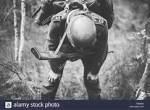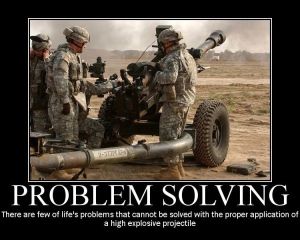Monthly Archives: August 2021
Letter XIII Latrines
Back in the states, people were still dancing to the tunes of The Dorsey Brothers, Count Basie and Artie Shaw. They listened to the songs of Doris Day, the Andrew Sisters, Lena Horne and Rosemary Clooney. But, some others weren’t so lucky, in the army there was always latrine duty, as depicted in the following letter from Smitty.
_________________________________________________________________________________________________________________________________________
Letter XIII Latrines Wednesday 9/5/44
Dear Mom,
Many are the times you have heard me refer to the latrines. Never before had I any conception or realized the amount of genius and mathematical figuring that was necessary for the building of one of these casual looking comfort stations.
Yesterday I had the dubious honor of being selected, with four other disgruntled G.I.s, to labor on a detail whose sole aim and mission was the digging and building of a latrine. It seems that in order to get a latrine built correctly there also has to be present a lieutenant and a hard to please sergeant. Their presence is essential due to the fact that if they weren’t around, it would never get built, no less started and to supervise the completion and finesse details of the finer points necessary for sanitation and the comfort of the men. You can most generally find these two worthy in some far off spot, away from all the work.
To begin with, a place is chosen suitable for a latrine, generally about a half mile from the nearest inhabitant and well hidden in the brush and woods. This is done for the very simple reason that it affords the stricken G.I. a chance to brush up on his long forgotten tracking and compass reading lessons, also the hike involved tends to make up for the many he has missed.
You wait then while the Lt., in a very business-like manner, marks out the length and width desired. When finished, he gives you a short speech on the importance of the detail and the time limit allotted, ending with: “Good digging fellows. I know you can do it, as you are the picked men!”
You pick up your shovels and picks and gloomily get to work. First, the picks are put into play loosening up the stubborn ground. Then, the shovels get to work removing the loose dirt, making sure to pile it evenly around the hole. This procedure is followed until finally you have now a hole six feet long by five feet in width with a depth ranging anywheres from six to eight feet. Try as you may to dig less than six feet, the sergeant always has a ruler handy which he guards with his life. One would think that a latrine hole that size would last forever, but as I found out, in the army — they don’t.
Next step is to lower into this hole oil drums whose both ends have been removed. This end cutting process is something foreign to us as they had another detail doing that the day before. I understand though that it is a highly skilled job in that keeping the ax blades from chipping is quite a problem. These drums, once lowered and set side by side, draws to a close the crude laborious end of the job.
Boards, saws, hammers and nails now appear along with some overbearing would-be carpenters. They proceed to build a coffin-like box which looks more like anything else but a box. This affair, when finished, is fitted over the hole, covering completely the hole and part of the piles of loose dirt spread around the outer fringe. This type of latrine box is called the settee type. It is very comfortable to sit on if rough boarding isn’t employed. When the box is completed to the satisfaction and sitting height comfort of all present, holes are then cut in the top. These holes are oval in shape, but of different width and shapes. The rear end of a G.I.’s anatomy, I’ve found, has many varied shapes and sizes.
The next thing to put in an appearance is the latrine blind and screen. This is very simple, although at times men have leaned back into it and got tangled up in the canvas, bringing it where the blind should be. While the blind is being put up on a long pipe, funnel-shaped at one end comes up and demands a lot of detailed attention. The height of this pipe, when set, is a trial and tribulation to all and never satisfies all who use it. This funneled affair is intended for what all funnels are. The directing of a stream of water.
The Lt. and sergeant now come out of hiding, inspect it and proclaim it a job well done and worthy of their time and supervision, strutting off gaily chatting, leaving us to find our way alone, unguided and without a compass, back to our tents. We, in the building of this latrine were fortunate in that we only had to erect it once and it was the correct position. Generally, you dig three or four only to find out that it is out of line somehow with the next latrine a mile away.
Generals, colonels and majors all visit while you are at work. Their presence is also needed for the fact that when they are around, you stand at attention and in that way get a moment’s rest. The captain generally comes out to see how you are doing and always tells you to hurry it up as the boys back in camp are prancing around like young colts and doing weird dance steps all the while hoping that they can hold out until its completion.
When once finished and back in camp, you are kept busy giving the boys directions as to where it is and then have to listen to them gripe about the distance away from their tent the blame thing is. It is, I have found out, a thankless detail and one I intend missing the next time there is one to be built. There are of course different types of latrines as the illustrations show, but most of those are for troops on the move. Now, why they should say, ‘troops on the move’ I do not know, for certainly no matter whether in the latrines or on the way to it, you are most certainly moving.
Before any G.I. finds the latrine, the flies are already there. No latrine is a latrine until after a family or two moves in. They too are necessary in that without them as an annoying element, some men would never leave, others would fall asleep, while others would use it as an indefinite hiding place from some hike or detail. Latrines are also necessary for rumors. Until a good latrine is built, rumors around the camp lay dormant. Many new and strange acquaintances are made and the souls of many a man have been saved while sitting in this sanctuary place of appeasement.
No place in the army gets the care and attention of a latrine. Orderlies are assigned daily to see to its cleanliness. Medical inspections are twice a week, while on Saturdays it has to stand a general inspection. It is the haven of good-fellowship, conversations and a relief to all men in the end.
Hoping I have portrayed for you the army’s version of a rest station, I’ll close, as the flies in here are very annoying and the fellow standing and waiting for me to leave is going into a rage and walking up and down all the while eyeing me up and down as if to kill.
Ending this in a hasty departure and on the run, I am always,
Your son, Everett
####################################################################################################
Military Humor – Smitty’s artwork ! “When the WACs Take Over ? “
####################################################################################################
Farewell Salutes – In honor of the recently lost 13, Kabul, Afghanistan
The Marines were part of the 2nd Battalion/1st Marines, SSgt. Ryan C. Knauss of Corryton, TN was with the 82nd A/B Division
David Espinoza – Rio Bravo, TX; USMC, Lance Cpl.
Nicole L. Gee – Sacramento, CA; USMC, Sgt.
Darin Taylor Hoover – Salt Lake City, UT; USMC, SSgt.
Hunter Lopez – Indio, CA; USMC, Cpl.
Rylee McCollum – Jackson, WY; USMC, Lance Cpl.
Dylan R. Merola – Rancho Cucamonga, CA; USMC, Lance Cpl.
Karem Nikoui – Norco, CA; USMC, Lance Cpl.
Daegan William-Tyeler Page – Omaha, NE; USMC, Cpl.
Johanny Rosariopichardo – Lawrence, MA; USMC, Sgt.
Humberto A. Sanchez – Logansport, IN; USMC, Lance Cpl.
Jared Schmitz – St. Louis, MO; USMC, Lance Cpl.
Maxton Soviak – Berlin Heights, OH; US Navy, Corpsman (assigned to the 1st Marines)
########################################################################################################################################################################################################
WACs in New Guinea + current news
In June 1944, about the same time that Smitty landed in New Guinea, Gen. Kenney of the 5th Air Force started building up a WAC detachment in Australia. He had nearly 200 women in the HQ doing the secretarial duties. They must have been originally scheduled for Alaska, because they arrived with heavy woolen skirts, coats and shirts. The quartermaster re-equipped them with cotton G.I. clothing and the tailors of Brisbane were kept busy making alterations.
They were told of the deplorable conditions on New Guinea, but not a one backed off from the ‘hard knocks’ assignment. So, General Kenney handed the women over to their commanding officer, Captain Blanche Kline.
The women were warned that eggs would be nothing but a memory, so they purchased 30 hens from an Australian poultryman. The WACs talked about the bacon and eggs, omelets and soufflés they were going to eat. Some wanted to raise the chickens and thoughts of fried chicken dinners swirled through their heads.
One thing began to worry the ladies – the hens hadn’t laid one single egg since they landed in New Guinea. Among the men there were several “experts” who were called upon for assistance. The diet was changed as they brought in feed from Australia. Still – No eggs.
One person observed that there were no roosters. Of course! they thought, that had to be the answer! In the nearest village, the WACs bartered with cosmetics and clothing in exchange for 3 slim roosters placed in the chicken enclosure. The hens displayed enthusiasm, but their attraction was not reciprocated. It turned out that the roosters were fighting cocks that now refused to eat.
The WACs decided to go out of the chicken business. The roosters were returned to the village, and the ladies had a dinner that became part of their history. It was now a fond memory to look back on when rations were worse than usual.
The story was taken from “General Kenney Reports”.
CLICK ON IMAGES TO ENLARGE.
####################################################################################################
Current News – Lawrence J. Hickey
RIP Lawrence J. Hickey, founder of the IHRA, researcher extraordinaire went on his final mission 14 August 2021.
https://irandpcorp.com/about-ihra/
To reach the IHRA blog and express your condolences…
https://airwarworldwar2.wordpress.com/
####################################################################################################
Current Veteran News –
For those who are having difficulty coping with the Afghanistan situation, the VA is providing assistance for veterans …
####################################################################################################
Military Humor –
####################################################################################################
Farewell Salutes –
Alden Allen (100) – Ironwood, MN; US Army Air Corps, WWII, ETO, Lt.
Helen Beeching – Nelson, NZ; WRENs, WWII
Biacio Casola – Long Beach, CA; US Navy, WWII, Seaman 1st Class # 2232399, USS Oklahoma, KIA (Pearl Harbor)
Jow Galloway – Refugio, TX; Civilian, war correspondent, Bronze Star / author “We Were Soldiers Once … and Young”
Gerald R. Helms – Chicago, IL; US Army, WWII, ETO, SSgt., # 36306478, Bronze Star, Co E/325/82nd Airborne, KIA (Katerbosch, NETH)
Martin ‘Bobby’ O’Gara – Broad Channel, NY; US Navy, Korea
Bill Overmier (101) – Albuquerque, NM; US National Guard/Army, WWII, PTO, POW
Herman Schmidt – Sheridan, WY; US Navy, WWII, PTO, Gunner’s Mate 3rd Class # 3683763, USS Oklahoma, KIA (Pearl Harbor)
William K. Shafer – Alhambra, CA; WWII, PTO, Fireman 2nd Class, USS Oklahoma, KIA (Pearl Harbor)
Jonathan Taylor – Augusta, GA; US Army, SSgt.
Larry S. Wassil – Bloomfield, NJ; US Army, WWII, ETO, Sgt. # 32245879, 13/8th Infantry Division, Bronze Star, KIA (BELG)
James C. Williams – Portland, OR; US Navy, WWII, PTO, Seaman 1st Class # 4143915, USS Oklahoma, KIA (Pearl Harbor)
####################################################################################################
####################################################################################################
Letter XI “?? Problems?? / National 81st Airborne Day
The 11th Airborne Division, still in New Guinea and continuing to specialize their training – little do they know that they are coming closer and closer to their time for combat. Their commander, General Swing, awaits the word from General MacArthur.
_____________________________________________________________________________________________________________________________________________
Letter XII ?? Problems ?? 0800 Sunday 9/3/44
Dear Mom, We will start off first with “Webster’s” definition of the word — problem. “A question for solution, and a proposition to be demonstrated.” This is all very true, only in the army, although it is demonstrated, it never turns out in a satisfactory solution.
For some unknown reason, the hint of a problem soon-to-be gets around long before it is ever officially announced. When once you hear about it, you begin to wonder just how you will get out of going and wonder if going on sick call will help. The best thing is to try to get on some detail, but generally, the details floating around loose at that time are of such a nature that going on the problem is much easier.
No one likes or cares for problems including the officers and non-coms, except maybe a few who are bucking and hope to show their leader that they have tactical and sure-fire P.F.C. abilities.
No matter how easy or simple the problem, you always have to carry around a load of unnecessary equipment. On the day set forth for the problem they put up a list of the stuff you are to take with you. After an hour or two spent trying to get everything into the pack, just big enough to hold a pair of socks, a tent, poles, rain gear, poncho, insect repellent and your toilet articles, you are pretty well tired out and lie down for a few minutes rest. You no sooner do that than the sergeant will come around with a revised list of equipment and again you unpack and re-pack. This goes on through the day until finally in utter despair you pick up your duffel bag and carry that on your back.
Finally the whistle blows. You hurriedly put on your pack, pick up your rifle and dash to fall in the formation forming outside. After standing there for 30 or 40 minutes, you realize that all your rushing was in vain and that you have a chance to untangle yourself from the pack harness and straighten it out. You no sooner start to do this than the order comes to pull out and get going.
While marching out, it suddenly dawns on you that a quick visit to the latrine would have helped, but is now impossible to get to. After walking for two hours, your pack feels like a ton and your five-pound rifle now weighs twenty. The heat is slowly getting you down and you begin to wonder, is it all worth it? Soon the Lt. comes prancing alongside of you and walking just as easy as falling off a log. He says a few words to you, such as, “Close it up.” “Keep in line” or “How you doing fella?” as he passes by. You wonder how the devil he can keep it up, until you take a good look at his pack. Many are the times when I wondered what would happen if I stuck a pin in it. Wonderful things these basketball bladders.
When finally you arrive at the next to last stop, the Lt. calls his men around him and proceeds to try and tell them what this problem is about and what we are supposed to do. We are all too tired to listen in the first place and in the second place — don’t give a damn. All this time you watch the Lt. and soon you realize that he didn’t much care for the problem and is probably just as annoyed as you.
When you finally hit the place where the problem is, confusion takes over and the problem is started. Orders are given and not carried out, cause generally the G.I. has been told before to do something else, so that by the time order is restored, all is in a worse shape than before. The Lt. takes out a map to try and locate himself and is only to find that the map he has is the one relating to last week’s problem. No matter, from then on, where the C.P. and assembly area were to be, now, wherever you are at that particular moment will become the C.P. and assembly area. If the rest of the company was fortunate enough to locate the right place — the hell with them — let them find us.
You are then assigned to different spots and told to dig in. Now, digging in calls for some thought. If you just dig a slit trench, it doesn’t call for much work, but you can always be seen and so you can’t sleep. But, if you dig a larger hole, called a foxhole, you can safely sleep away the night and also — the problem. Myself? I go for the foxhole on the slit trench side as it affords me the opportunity of sleeping in a horizontal position.
Soon the whistle blows announcing the end of the problem. You awaken to find that it is the next day and that once again you slept through the whole mess. Questions are asked as to who or what side won, did the enemy get through and a thousand and one others. Before leaving the place, you now have to shovel the dirt back into your hole, as leaving blank open holes around are dangerous to life and limb. When that is completed, you put your backpack back on and trudge your weary way back.
Upon arriving back in camp, critiques are held and then you find out what you were supposed to have learnt while you were out there. I have always been of the opinion that if critiques were held before going out, it would save us all a lot of trouble and also make going on the problem — unnecessary. Once back in your tent, you unpack and think that now you will lie down and have a little nap, only to find out that the detail you tried to get on in order to miss the problem has materialized and that you are to get up and get on it. Oh, weary bones, will they never have any rest?
Don’t give up, for after all, the war can’t last forever. One thing you can always count on though, problems are the pride and joy of the army and will continue on being as long as there is an army.
Hope I’ve confused you as much as we are. I’ll leave you as that damn detail has come up and so I’ll have to carry my weary body out and hope I last out the day.
Confused as all hell, Everett
CLICK ON IMAGES TO ENLARGE.
####################################################################################################
Military Humor –
###################################################################################################
Current News – 16 August 2021 – NATIONAL 81ST AIRBORNE DAY
To check out my post for the Airborne last year –
https://pacificparatrooper.wordpress.com/2020/08/16/national-airborne-day-16-august-2020-80-years/
###################################################################################################
Farewell Salutes –
Noel Adams – Arvada, CO; US Navy, WWII, motor machinist, USS Osterhaus
Russel Baade – USA; USMC, WWII & Korea, flight instructor, Lt. Colonel
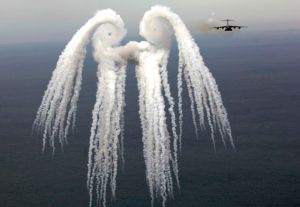
Smoke Angel, for returning KIA
Nando A. Cavalieri – Chicago, IL; US Army Air Corps, WWII, ETO, Captain # 0-769257, 324/91/ 8th Air Force, Bombardier, KIA (Döberitz, GER)
Stu Hedley – W.Palm Beach, FL; US Navy, WWII, PTO, USS West Virginia
Pascual LeDoux – Las Vegas, NM; US Navy, WWII, PTO, USS Mobjack, PT-boat Tender
Henry D. Mitchell – Washington County, AK; US Army Air Corps, WWII, ETO, 2nd Lt. # 0-763294, 48/14/15th Air Force, pilot, KIA (Waldegg, AUS)
Frederick Ott – Broad Channel, NY; US Army, WWII
Emmet W. Schwartz – New Philadelphia, OH; US Army, WWII, ETO, Pvt. # 35837608, 121/8th Infantry Division, Bronze Star, KIA (LUX)
Dave Severance (102) – Milwaukee, WI; USMC, WWII, PTO, Silver Star / Korea, pilot, Colonel (Ret. 30 y.)
Charles R. Taylor – Carnegie, OK; USMC; WWII, PTO, Pfc. # 284217, USS Oklahoma, KIA (Pearl Harbor)
Lloyd C. Wade – Westminster, CO; US Army Air Corps, WWII, PTO, Co C/127th Engineers/11th Airborne Division
Glen F. White – Emporia, KA; USMC, WWII, PTO, Pfc., Co A/1/6/2nd Marine Division, KIA (Betio, Tarawa Atoll)
####################################################################################################
Letter XI “Java at 2100”
Off New Guinea, the resistance on Biak and Noemfoor Islands was crushed as 2,000 paratroopers of the 503rd jumped and the land forces of the 158th RCT overtook the airfields. Operation Cyclone was a success. The 503rd A/B would soon be incorporated into the 11th Airborne Division.
In a radio broadcast by Pres. Roosevelt, he made clear the final decision that troops would be attacking the Philippine Islands and not Formosa. Now the Japanese were also aware. It was seen by White House observers that FDR had timed the invasion to make headlines for the end of his re-election campaign.
_________________________________________________________________________________________________________________________________________
Letter XI Java at 2100 Thursday 8/10/44
Dear Mom, Java at 2100 is nothing more or less than a good old-fashioned gabfest or the same as women folk back home call a “Koffee Klotch.”
There are a few differences though that need a little explaining. At home, the girls gather and talk, generally about the one who isn’t present; including in this conversation, her husband and his family, also hers and then down the line to her most distant relatives. Also, they will gab for hours about the gossip of the neighborhood and of course add a little more to it. At times, arguments amongst themselves will ensue and that ends the present meeting and the next few to come.
With us there are a few differences and variations, such as: we don’t care whether the person being talked about is present or not; although his absence is preferred and appreciated. Of course we have our little gossip circles, but they mostly run toward the rumor side and therefore no one puts much stock in them. Invariably we always talk of home, such as what we did before the President greeted us, also what we intend to do when we get back. This home talk most always leads into a lively debate as to whose state, city or county is the best. Arguing that topic is just like arguing religion; no one is ever impressed or convinced.
The officers are always good for a good 20 to 30 minute razing, with no one pulling their punches. At times though you must be careful, as there might be someone present who is bucking like the devil and the talk will go back. Never is there a good word said in the officers’ defense and I doubt if there ever will be.

a sample koffee klotch
Another colorful period is spent when someone brings up non-coms. What is said at this time is unprintable. Surprise to say that if I was visited by the seven plagues, I wouldn’t be as bad off as the non-coms, if even half the things wished upon him should ever befall him. I sometimes wonder if ever in their own conceited way they know just how the private feels toward them.
At home, the girls are all gathered around strictly talking, but here again we vary. Some may be playing cards with every now and then some player adding his say, much to the consternation and anguish of the others. Over in another corner are the die-hards who always listen for rumors and continue on talking about the latest one long after the others have dropped it.
All this time the water is being boiled outside in a large five gallon can. Every now and then, someone will go out to see if it is time to add the coffee. When once the coffee is added, there comes over the tent a lull and then everyone shuffles out to get his cup, which he will dip into the can of coffee before coming back in. Conversation for a while is a combination of talk, loud sips and the blowing of the hot Java. We manage also to provide milk and sugar and at times, crackers. The last is generally present only around paydays.
I don’t know whether it is the effects of the hot coffee upon the vocal chords or not, but always right after the coffee, some would-be Crosby or Sinatra starts singing some old favorite and that is when music conquers over all. They say music has its charms, but after listening to it here — I have my doubts.
Some nights the conversations are really good and so is the coffee, on those occasions, talking lasts after taps has blown and then you are sure to hear the mournful wail of the company charge of quarters meekly saying, “Aw fellas, put out the lights.” Never has it happened that the request was heeded and I doubt if it ever will be. It isn’t long after though that the first sergeant comes barging in bellowing, “Get those blankety-blank lights out and get the H–l to bed!” Lights immediately go out and good-nights can be heard throughout the company area as Koffee Klotches all over break up.
Peace and quiet prevails until all one can hear is the not too soft patter of feet heading out to the place where, at some time or another, we all must frequent. Bits of conversation can be heard drifting through the night, but generally isn’t worth listening to, as it is only the rumor mongers at work again in their office.
Before I close this chapter, allow me to say that the evening coffee, sugar and milk are all donated cheerfully by the fellow most unfortunate enough to have had K.P. the day before.
Having nothing more to gab about and also having to pay a visit down to the end of the company street, I’ll close before I have to make a run for it.
Gabbingly yours, Everett (The Donator of This Evening’s Coffee)
####################################################################################################
Military Humor – 

####################################################################################################
Farewell Salutes –
William Billeaux – Chicago, IL; US Army, WWII, ETO, 2-Bronze Stars
Eric Carter (101) – Worcestershire, ENG; RAF, WWII, ETO + CBI, pilot
Courtney (Anderson) Couch – Lane County, OR; US Army / Sheriff’s deputy
George Gonzalez – Brooklyn, NY; US Army / Pentagon Police Force
Harold W. Hayden – Norwood, OH; USMC, WWII, PTO, Pfc., Co A/1/6/2nd Marine Division, KIA (Betio, Tarawa Atoll)
Tresse Z. King – Raeford, NC; US Air Force, Kuwait, Chief Master Sgt.
George Miller – Broad Channel, NY; US Army, Vietnam
Frank A. Norris – Quinlan, TX; US Army Air Corps, WWII, ETO, TSgt., pilot-engineer, 345/98/9th Air Force, KIA (Ploesti, ROM)
Rex Prisbrey – Washington, UT; US Army Air Corps, CBI
Daniel Sullivan – Groton, CT; US Army, WWII, ETO, radar operator
Royal L. Waltz – Cambria, CA; USMC, WWII, PTO, Pfc., Co A/1/18/2 Marine Division, KIA (Betio, Tarawa Atoll)
Byron S. Wise – Newalla, OK; US Army, Co. B/88th Artillery, 11th Airborne Division
Dale W. Wright – Flint, MI; US Army, Korea, Cpl., Co C/1/32/7th Infantry Division, KIA (Chosin Reservoir, NK)
###################################################################################################
JUNGLE JUICE Letter X
In Dobodura, New Guinea, the 457th began to notice severe shortages in their sugar supply. As it turned out, there was a major boot-legging operation in progress. With the absence of alcohol, the men felt necessity would be the mother of invention, but they were caught with their stills in production. The makeshift liquor companies were immediately put out of business.
My father had other ideas. The following letter was one I never tired of reading; it always gives me a chuckle or two. My father’s ingenuity was unfailing. He used to tell me, “If you think hard enough, there’s a solution to every problem.” After years of having tended bar, this was going to be right up Smitty’s alley.
Letter # 10 has been previously published by “Whistling Shade” magazine in 2007. I submitted it during their war story inquiry. And also, in The Miller Family’s “Soldiers’ Stories vol. 1”
____________________________________________________________________________________________________
Letter X “Jungle Juice” Monday 7/17/44
Dear Mom,
The title of this letter, at first glance, will no doubt puzzle you, but I suspect at the end you will know more than you do now. Before going any farther with this, allow me to explain the whys and wherefores of its origin and purpose.
The Army has been telling us, for some time now, that any day (they mean year), they are going to issue us hot, dry soldiers some beer. They haven’t told us the percentages yet, but never fear, it will be 3.2. In the meantime, we’re here in New Guinea patiently awaiting the day. We know, because our eyes and nostrils do not lie, that there is good whiskey slyly floating about. Try as we may to lay hold of some, as yet, none have succeeded.
There is an old saying, told to me by a much older and wiser veteran of this man’s army that goes: “Take something away from a soldier and he will, in time, make or find a better substitute.” Hence and forever after – Jungle Juice.
To begin the making of this liquor substitute, one must first overcome a few minor details in order to secure the necessary equipment and ingredients. First: You may try to cultivate the friendship of the mess sergeant. This is easily accomplished if one is well endowed with currency. Second: You may try getting on guard duty and taking a chance of getting the job of protecting the mess hall. (The odds against this working out is ten to one against you.) This is the hard way of acquiring the friendship of the mess sergeant and we will continue. With your new buddy’s help, you now have in your proud and cherished possession a quantity of raisins, dried prunes or apricots and some sugar. (Very rarely will one come up with any yeast, so we will forget it.)
Now, we need something to put all this stuff into. To make matters worse, it cannot be metal and it must be waterproof. A nail barrel will do the trick, if we soak it in water, thereby allowing the wood to swell. You could go to the supply sergeant and get a saw, hammer, nails and boards, but in taking this route, you risk your supplier discovering your idea and you will have to pay him off with the promise that, when finished, he will receive a share. Not only is this undesirable, but now you will have to sit out in the hot sun and build a cask. My first suggestion of a nail barrel will not only save you labor, but also add an extra drink of this wonderful alcoholic beverage.
Now, we are ready to begin. Into the empty cask, put your fruit and sugar, making certain to add water. With your hands, (clean ones are advisable) stir everything around while crushing some of the fruit with your fists. This is what’s called the “rapid juice extraction process.” When finished, cover the cask with a clean piece of linen long enough to drape over the side. Here, you can also use a G.I. handkerchief or undershirt. (This is just a sanitary precaution and it in no way affects the product.)
Now, dig yourself a hole (under your bunk preferably) large enough to receive the cask and conceal it. This is a necessary precaution as the manufacture of Jungle Juice is frowned upon by the Army and especially you C.O. or Inspection Officer. The finding of such might cause embarrassment. This way it will only be found if someone should trip you C.O. and he inadvertently falls face down on the spot.
All you have to do at this point is use some self-control and patiently wait out the next two or three weeks as the fruit, sugar and water do their stuff. We all know from experience that you will only sit out two weeks, so let’s get on with the last step. Surely you have kept busy locating empty bottles and cleaning them, so dig up the cask.
To accomplish the final phase, it is wise to get your mattress cover and put it over a clean, steel helmet. You will find that the Army had supplied you with a damn good filter. The whole parts stay on top and the liquid freely pours through, without blemish to the helmet. Pour the juice into the bottles and seal with candle wax, making them air tight. Here is the most difficult step because by this time, not only your curiosity, but your craving for a taste is so high — you’re almost completely out of control. But, you must put your contraband away for one more week.
As the expected day approaches, I want to warn you to be on the lookout for newly acquired friends who start calling on you, regardless of the fact that they never came near you before. Yes, you are suddenly becoming the most popular guy in camp. When the hour approaches, marked as the time of reckoning, I would advise you to make up your mind that you are not going to finish it all in one sitting. Actually, this precaution is really unnecessary, as the Jungle Juice will decide that for you.
I won’t describe the taste. For some it is bitter and others say sweet. No two batches are alike and in fact the Juice has no opposition. Even its most adamant foes agree that for variety, the Juice has no equal.
This recipe is given free of charge.
I hope to hear your hiccupping in your next letter soon.
Your brewmeister son & never to be dry again, Everett
___________________________________________________________________________________
General Swing decided, after the stills were destroyed, to bring ice cream machines and set up sports competitions. Teams were made up for volleyball, softball and tackle football. This proved not only to lift their spirits, but the activities kept them in top physical shape.
[ It always amazed me that such a letter as “Jungle Juice” made it through the censors without Smitty ever getting into trouble. His little operation was never discovered. ]
click on images to enlarge.
####################################################################################################
HAPPY 271st BIRTHDAY TO THE U.S. COAST GUARD on 4 August 2021!!!
####################################################################################################
Military Humor –
someone was drunk when they thought this one up!!
####################################################################################################
Farewell Salutes –
Henry Bock – Saco, ME; US Army Air Corps, WWII, PTO, 11th Airborne Division
Stella Charron – Meriden, CT; US Army WAC; WWII
Warren Durling – Kingston, NY; US Army Air Corps, WWII, ETO, Watton Air Base
Fred Farris – Hillsboro, TX; USMC; WWII, PTO, Sgt., Co I/3/2/2nd Marine Division, KIA (Betio, Tarawa Atoll)
Lawrence “Benny” Goodman (100) – W. London, ENG; RAF 617th Squadron, pilot
Harold W. Lindsey – Los Angeles, CA; US Navy, WWII, PTO, Seaman 2nd Class # 3822258, USS Oklahoma, KIA (Pearl Harbor)
Edward L. Queen – Baltimore, MD; US Navy, WWII, PTO, SeaBee, MGySgt.
Thomas J. Redgate – Brighton, MA; US Army, Korea, 1st Lt., Batt A/48/7th Infantry Division, KIA (Chosin Reservoir)
Eugene M. Skaggs – Anstead, WV; US Navy, WWII, PTO, Signalman, USS Oklahoma, KIA (Pearl Harbor)
Dale “Snort” Snodgrass – USA; US Navy, Captain, pilot ‘Top Gun’
Micah Walker – USA; US Army, Medical SSgt., 10th Special Forces Green Berets
Art VanDresser – Independence, KS; US Navy, WWII & Korea
####################################################################################################















